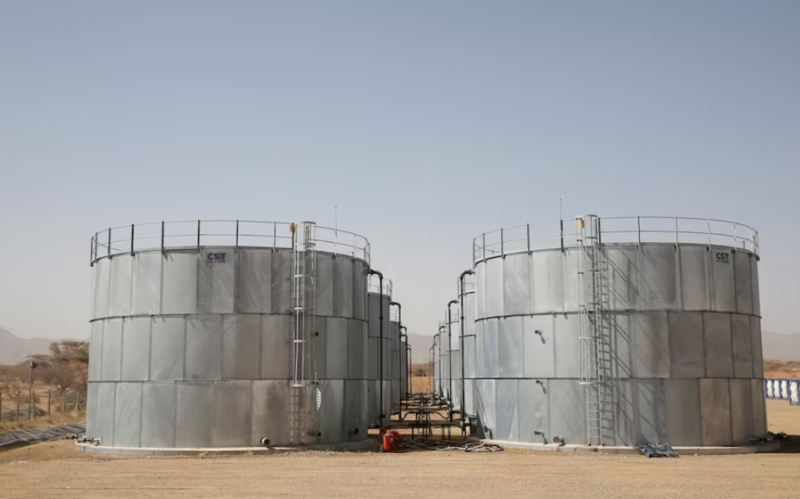Energy transition faces stark reality as oil demand set to rise to 2030

The vision of a green energy revolution is colliding with economic and industrial realities, with new research projecting a rise in global oil demand over the next five years.
According to the latest commodity outlook report by Afreximbank, this trend will drive an increase in oil production, potentially overshadowing the progress made in reducing reliance on fossil fuels.
“While renewable energy will play a large and growing role in the world’s energy sector, global demand for oil and gas will continue to rise over the coming years,” the lender noted.
“Global demand for oil and gas will continue to rise throughout the 2020s and into the 2030s.”
In Africa, Afreximbank projects oil production to increase steadily for the remainder of the decade. The report attributes this to heightened investment in Nigeria and the opening of new oil fields in Senegal, Uganda, and other locations, which are expected to drive output up by 12 per cent between 2025 and 2030.
It also forecasts a substantial rise in natural gas production, with output projected to climb by 15 per cent by 2030.
This outlook comes amid a slowdown in the momentum of the shift away from fossil fuels over the past year.
The latest Energy Transition Index (ETI) rankings by the World Economic Forum show Sub-Saharan Africa’s average score dropping to 48.8 from 49.6 in 2024, signalling a regional decline in energy transition progress.
According to the think tank, the decrease reflects wider challenges, including underinvestment, limited access to electricity in some areas, and institutional inefficiencies that continue to impede steady advancement.
“Gains are seen in rural electrification and regulatory commitment, though progress remains uneven due to underinvestment, low access rates, and institutional barriers,” the report stated.
The ETI measures key elements of the energy transition across three core priorities- equity, security, and sustainability, as well as readiness to transition. Scores are given on a 0–100 scale, with 100 representing the highest performance globally for each indicator and index component.
According to the latest commodity outlook report by Afreximbank, this trend will drive an increase in oil production, potentially overshadowing the progress made in reducing reliance on fossil fuels.
“While renewable energy will play a large and growing role in the world’s energy sector, global demand for oil and gas will continue to rise over the coming years,” the lender noted.
“Global demand for oil and gas will continue to rise throughout the 2020s and into the 2030s.”
In Africa, Afreximbank projects oil production to increase steadily for the remainder of the decade. The report attributes this to heightened investment in Nigeria and the opening of new oil fields in Senegal, Uganda, and other locations, which are expected to drive output up by 12 per cent between 2025 and 2030.
It also forecasts a substantial rise in natural gas production, with output projected to climb by 15 per cent by 2030.
This outlook comes amid a slowdown in the momentum of the shift away from fossil fuels over the past year.
The latest Energy Transition Index (ETI) rankings by the World Economic Forum show Sub-Saharan Africa’s average score dropping to 48.8 from 49.6 in 2024, signalling a regional decline in energy transition progress.
According to the think tank, the decrease reflects wider challenges, including underinvestment, limited access to electricity in some areas, and institutional inefficiencies that continue to impede steady advancement.
“Gains are seen in rural electrification and regulatory commitment, though progress remains uneven due to underinvestment, low access rates, and institutional barriers,” the report stated.
The ETI measures key elements of the energy transition across three core priorities- equity, security, and sustainability, as well as readiness to transition. Scores are given on a 0–100 scale, with 100 representing the highest performance globally for each indicator and index component.
green energy
renewable energy
Afreximbank
oil demand
Let’s Connect
We’re here to listen, support, and engage with you.
Whether it’s feedback, a request, or collaboration — Hon. Yusuf Hassan’s team welcomes your message.
Office Address
Kamukunji Constituency Office, Nairobi
Call
+254 737 500200, +254 716 667733
“Leadership is not about position — it’s about purpose, people, and progress.”